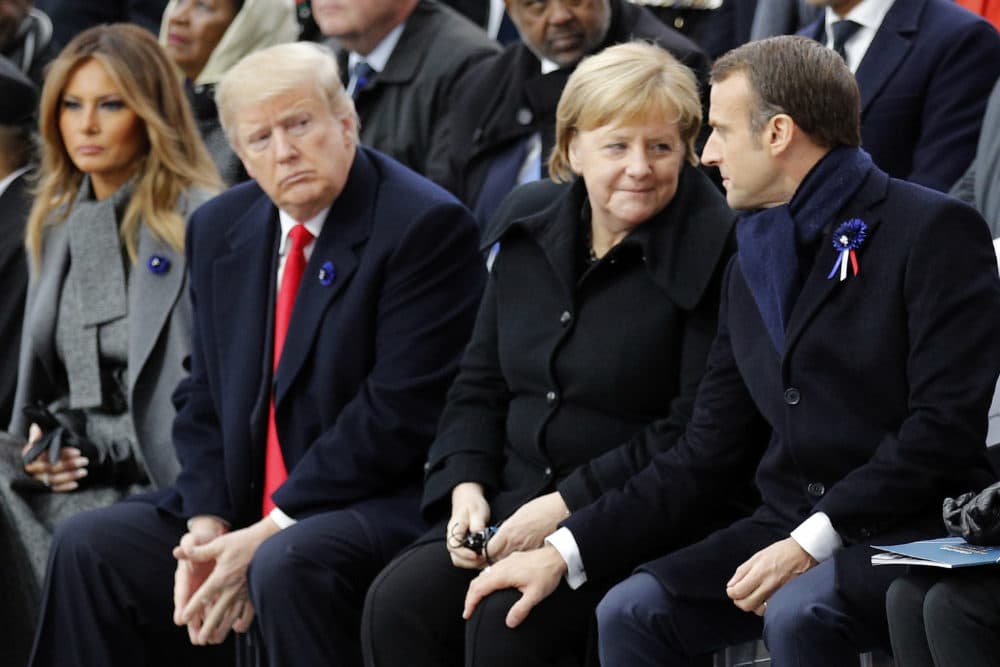Advertisement
Commentary
Trump Is Abandoning The Paris Agreement. If Only That Were The Worst Of It

President Trump is officially pulling the U.S. out of the Paris Climate Agreement. I can’t even care.
The formal withdrawal from the pact adds to a long list of pro-business, anti-climate moves the Trump administration has made. After almost three years of policies detrimental to the environment, this latest insult is a mere footnote.
Trump scuttled President Obama’s plan for cleaner electricity, weakened regulations on methane, froze fuel-economy standards (that Obama had scheduled to tighten), eased fracking regulations, and lunged at every opportunity to bolster domestic fossil fuel production, including offshore drilling. Those changes alone represent gigatons more carbon in the atmosphere, now and for years to come.
He tried his best to prop up the coal industry, although it’s going bankrupt anyway. The administration even determined that the rules limiting mercury emissions from coal-fired power plants were costing producers too much, despite the established science that says mercury impairs brain development in infants and children.
Leaving the Paris Agreement? If only that were the worst of it.

The president's every move seems designed to spite climate activists and mollify his political base. Every action that flies in the face of the climate crisis further demonstrates how willing Trump is to antagonize a movement historically identified with the left, and how much he is dedicated to fossil energy dominance.
Nobody expected this president to get behind something like the Green New Deal, but there are measures that are palatable to conservatives he could have taken. Some prominent Republicans have come out in support of a carbon tax, for example. Even doing nothing about climate policy would be an improvement, but Trump sneers at anything that would put a chink in his armor of climate denial.
Even doing nothing about climate policy would be an improvement, but Trump sneers at anything that would put a chink in his armor of climate denial.
To some extent, actions below the federal level have filled the gaps. America’s Pledge on Climate coalition, a project led by Michael Bloomberg, aims to meet the emission reduction commitments set out in the Paris Agreement at state and municipal levels. That kind of local and regional action can help counter the negative news from Washington.
But Trump has manufactured obstacles for states that pursue progressive climate policies. The Environmental Protection Agency revoked the waiver that allowed California to set its own tailpipe emissions standards, impeding that state’s efforts to promote more fuel-efficient vehicles.
Here in Massachusetts, the first grid-scale offshore wind farm in the country appeared set to begin construction in 2019, until a critical permit ran aground at the Department of the Interior. Gov. Charlie Baker’s trip to Washington to plead the case was unproductive, so this crucial renewable energy project is in limbo at least until the spring of 2020.
We’ve known of Trump’s intentions to leave the Paris Agreement since 2017, and our departure is a minor setback. The accord remains vital because it brings the nations of the world together to combat the climate crisis jointly, recognizing that cooperation and commitment from all parties are essential for success. Still, what the 192 countries agreed to in 2015 — and they are not on track — is not enough to forestall grave outcomes that are inevitable if damage to global ecosystems continues.
The bar has now been raised. A carbon-neutral economy by 2050, if not sooner, is the new standard for serious climate policy.
The rapid decarbonization of the economy that some of the Democratic presidential candidates have proposed — most notably Bernie Sanders and Elizabeth Warren — is the goal to which the nation should aspire right now. To establish global leadership on the climate front, and to give the world a fighting chance to avoid crashing across the threshold of a 2 degree Celsius rise above the pre-industrial baseline, the U.S. needs to go well beyond what it promised in 2015.
So, no, I don’t care that we’re officially out of the Paris Agreement. It’s not a surprise, and we’re facing many other critical climate issues.
What I do care about is electing a new president in 2020 who will rejoin the agreement on day one, and then begin the hard work of building the climate policy we need.
Follow Cognoscenti on Facebook and Twitter, and sign up for our twice-weekly
